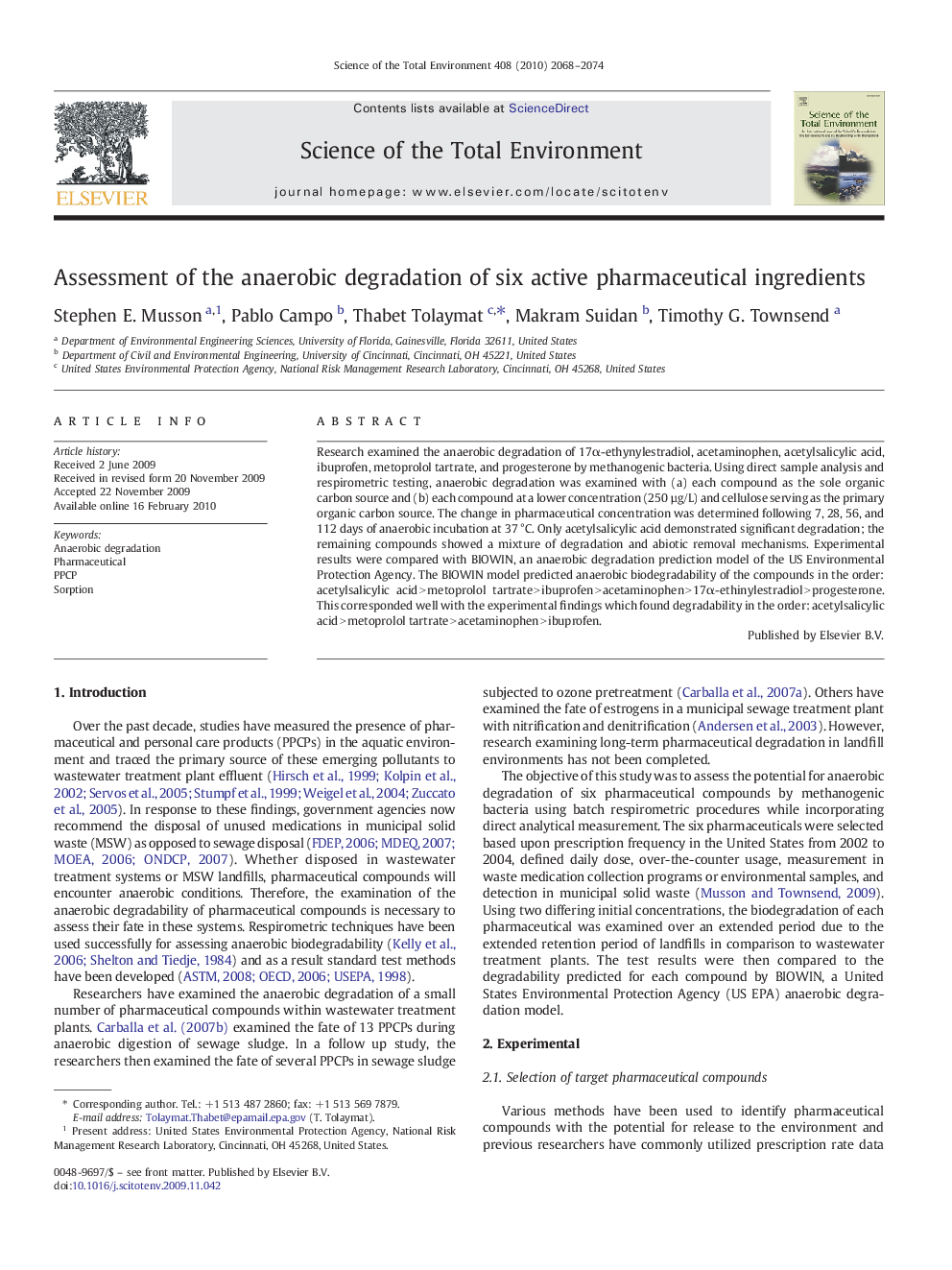| Article ID | Journal | Published Year | Pages | File Type |
|---|---|---|---|---|
| 4431478 | Science of The Total Environment | 2010 | 7 Pages |
Research examined the anaerobic degradation of 17α-ethynylestradiol, acetaminophen, acetylsalicylic acid, ibuprofen, metoprolol tartrate, and progesterone by methanogenic bacteria. Using direct sample analysis and respirometric testing, anaerobic degradation was examined with (a) each compound as the sole organic carbon source and (b) each compound at a lower concentration (250 µg/L) and cellulose serving as the primary organic carbon source. The change in pharmaceutical concentration was determined following 7, 28, 56, and 112 days of anaerobic incubation at 37 °C. Only acetylsalicylic acid demonstrated significant degradation; the remaining compounds showed a mixture of degradation and abiotic removal mechanisms. Experimental results were compared with BIOWIN, an anaerobic degradation prediction model of the US Environmental Protection Agency. The BIOWIN model predicted anaerobic biodegradability of the compounds in the order: acetylsalicylic acid > metoprolol tartrate > ibuprofen > acetaminophen > 17α-ethinylestradiol > progesterone. This corresponded well with the experimental findings which found degradability in the order: acetylsalicylic acid > metoprolol tartrate > acetaminophen > ibuprofen.
